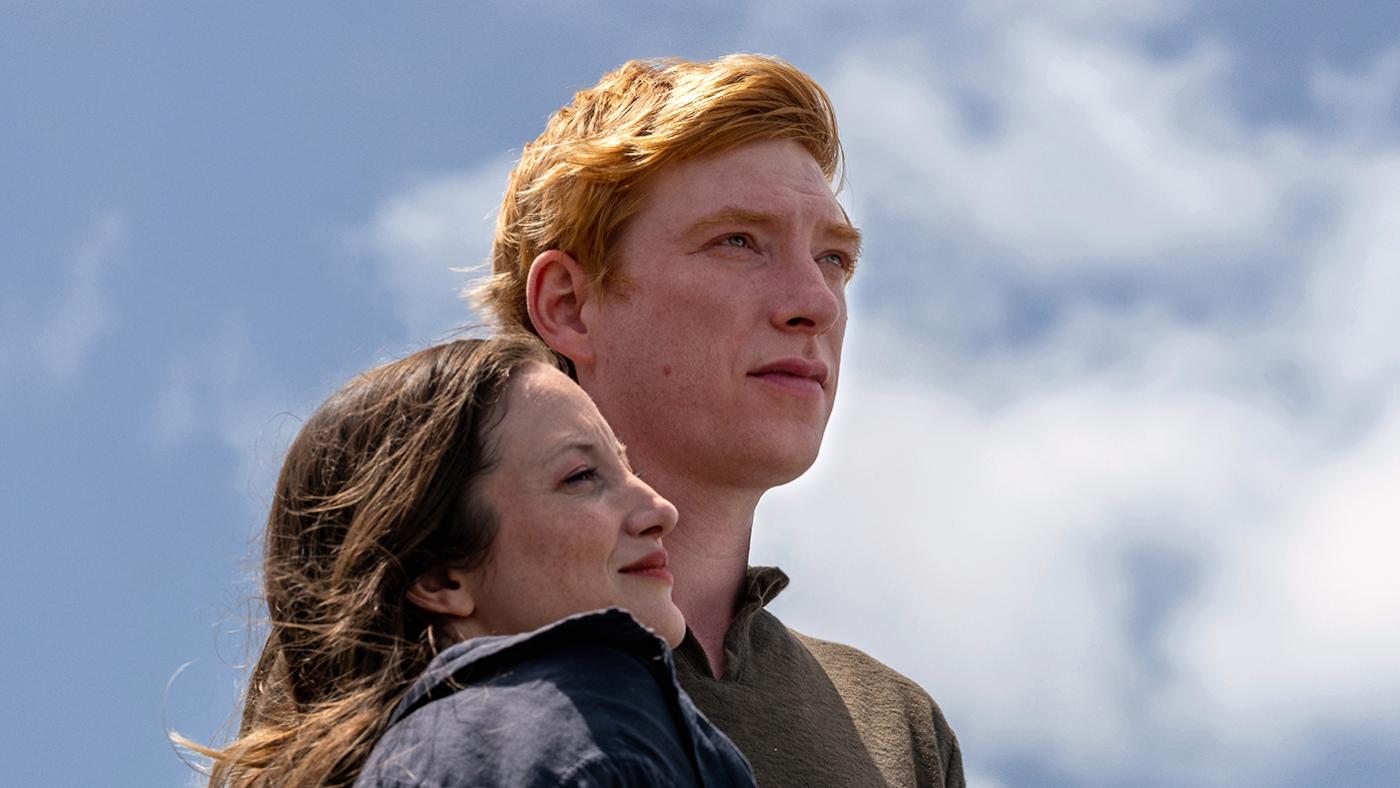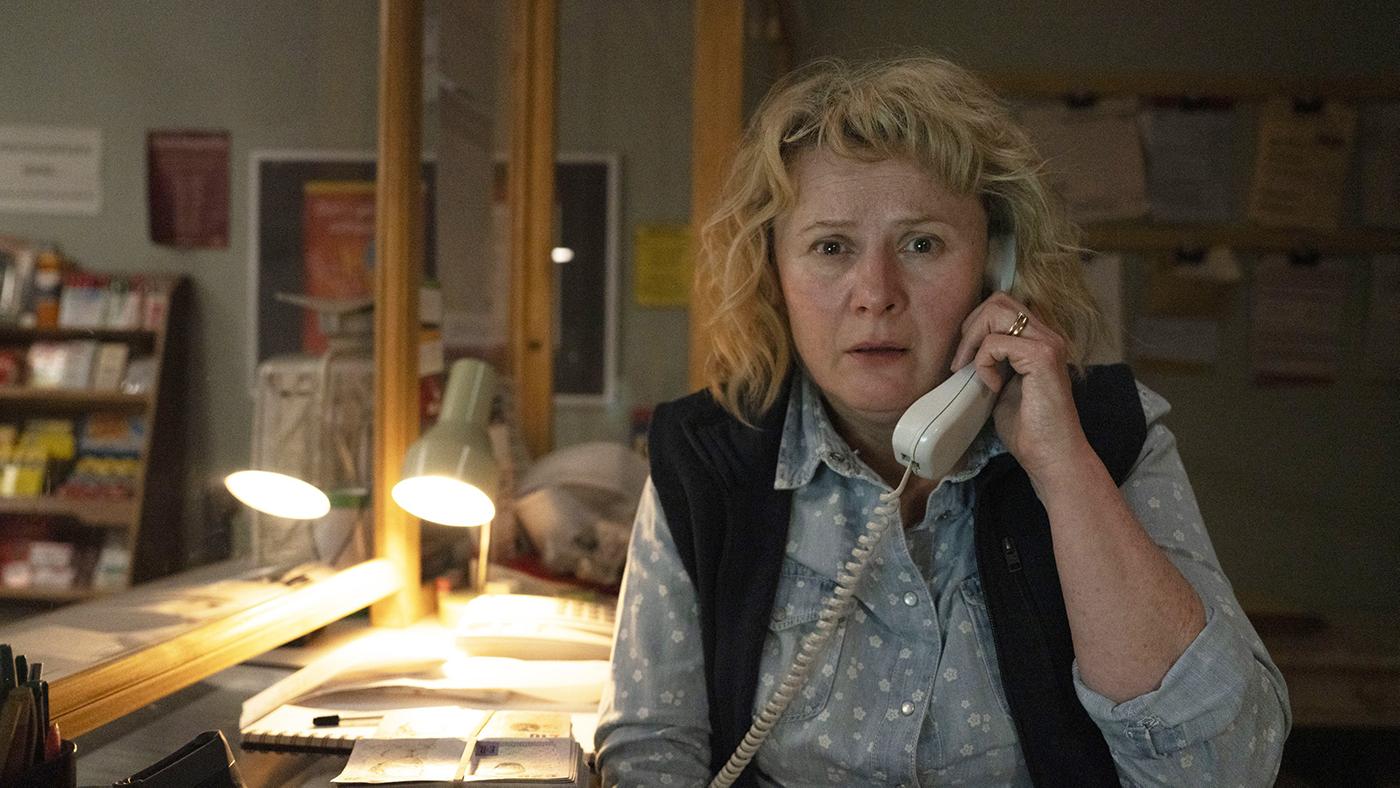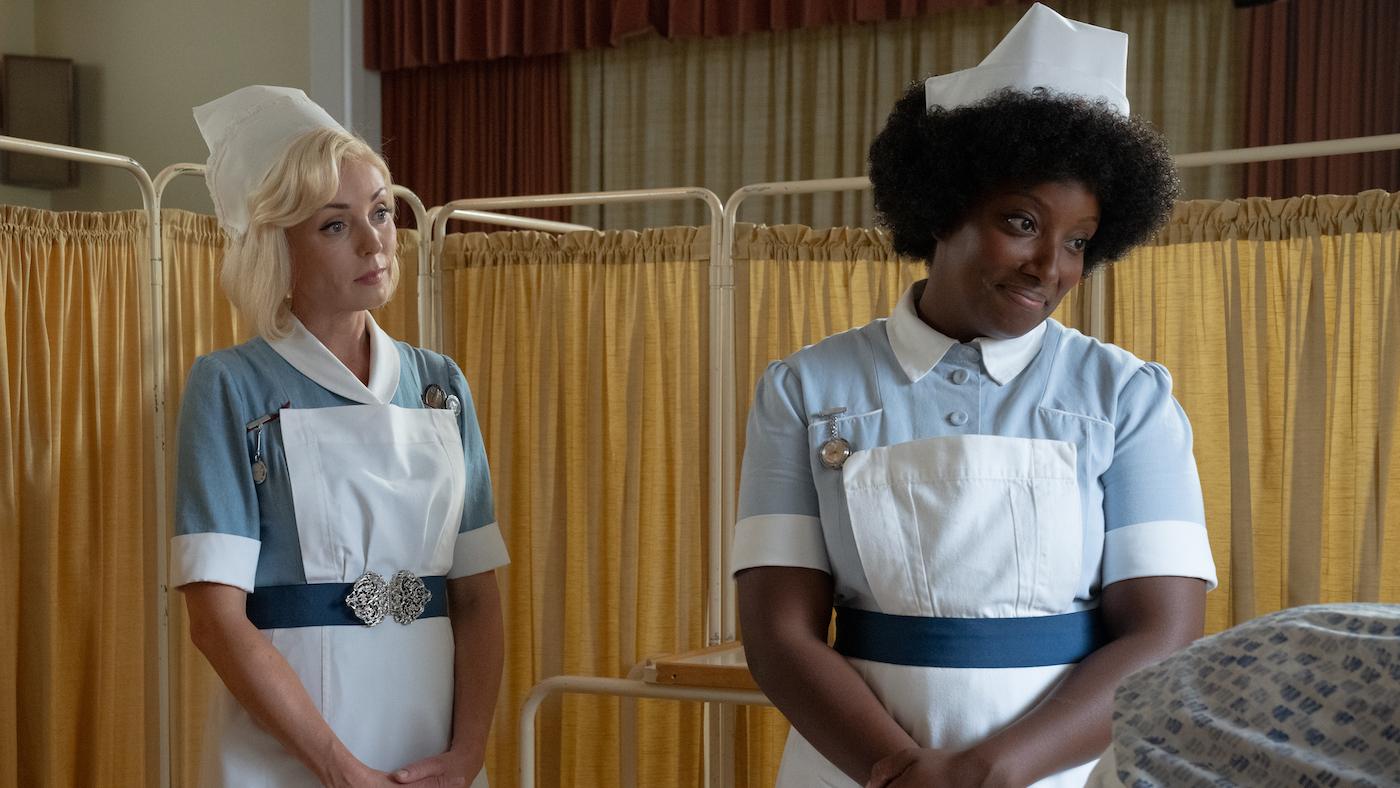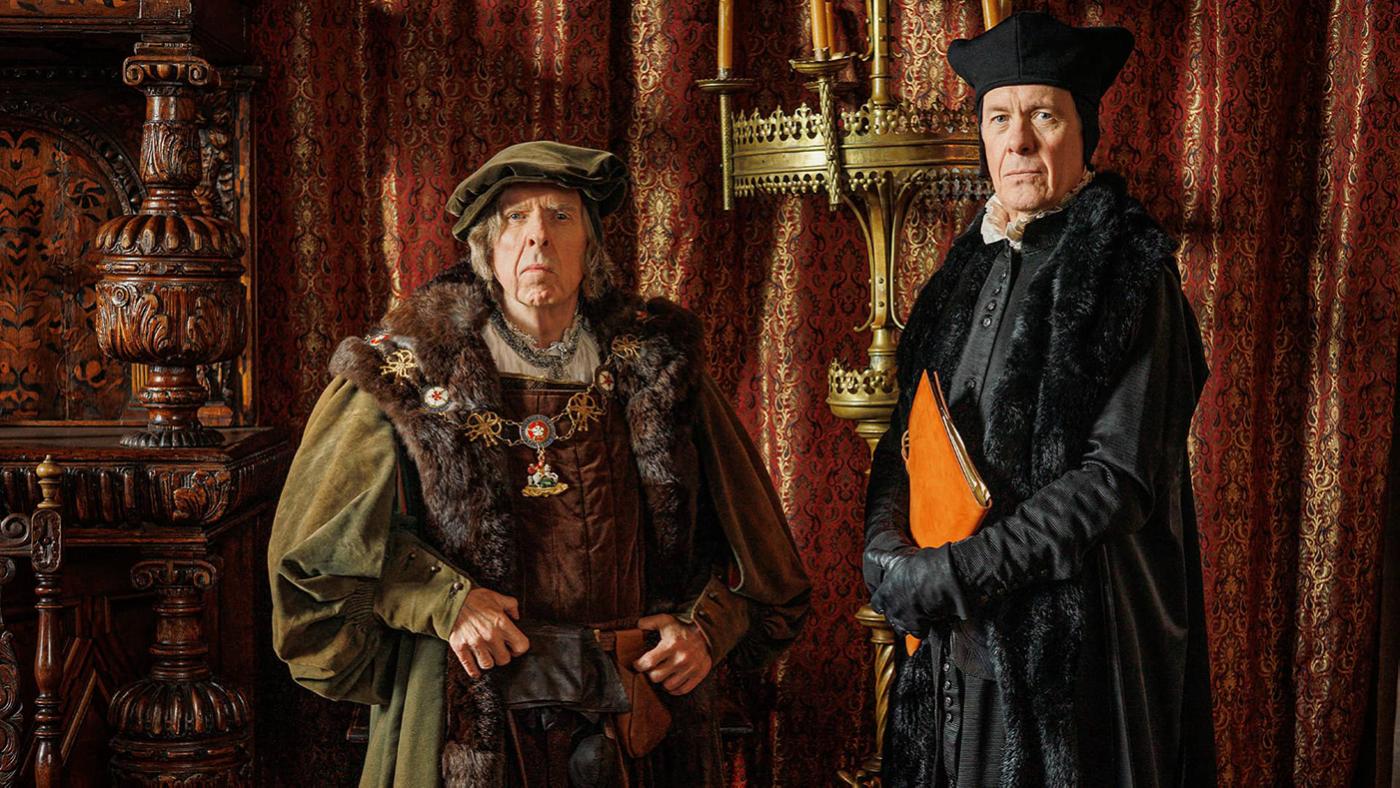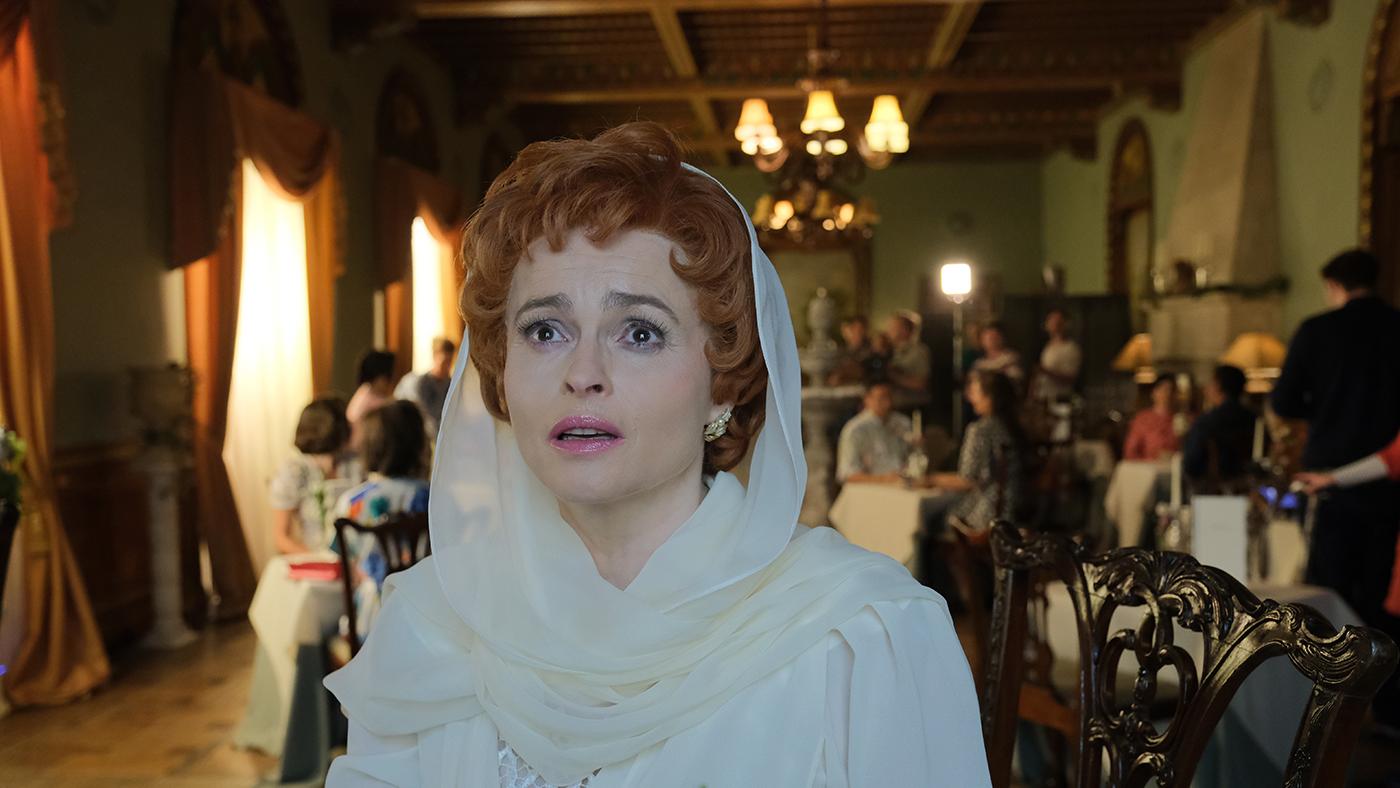'Magpie Murders' Recap: Episode 3
Daniel Hautzinger
October 30, 2022
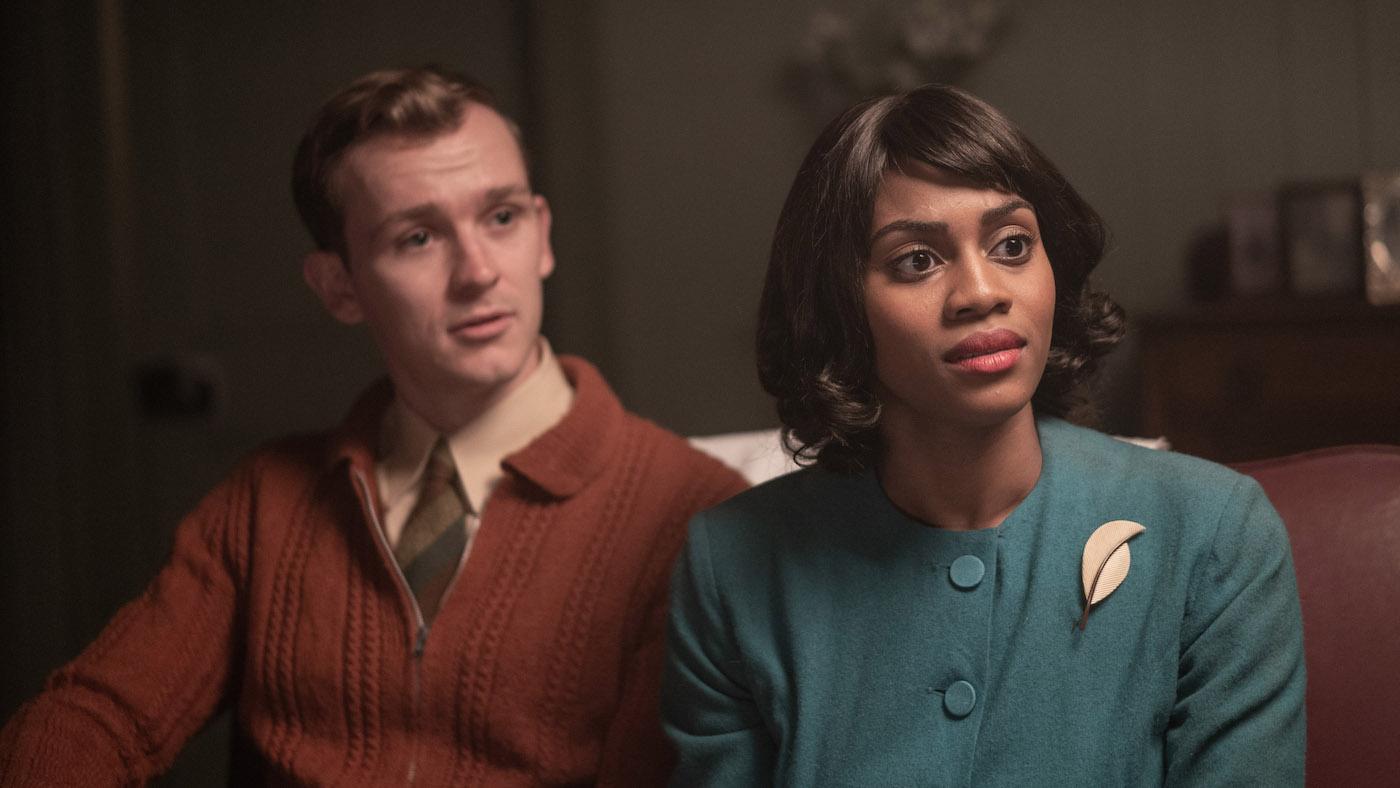
Magpie Murders airs Sundays at 8:00 pm and is available to stream. Recap the previous and following episodes.
Keep up with your favorite dramas and mysteries by signing up for our newsletter, Dramalogue.
Flashback to an argument—about a flashback. Seven years ago, Alan and Susan clashed over one of his books. Alan wanted to be a serious writer and disliked that his Atticus Pünd novels were mere entertainment. To that end, he had included a flashback chapter about Pünd’s time in Auschwitz in one novel; Susan found it unnecessary. After this hostile meeting, she and Alan communicated only via email.
Alan had strong opinions about his books: back in the present, when Charles accidentally called his forthcoming novel The Magpie Murders at their dinner in London together before Alan died, Alan strongly objected to the inclusion of “the.” Alan was drunk: the dinner was meant to be a celebration of his completion of the manuscript. The night was further marred by a waiter dropping plates, Charles tells Susan.
Charles, and the company interested in buying Clover Books, need Susan to make a decision soon on whether she wants to become CEO. Andreas also needs a decision from her on whether she will move with him to Crete to operate a hotel that his cousin has bought with loaned money. He told his school he is leaving his teaching job at the end of the term; he wants to spend his life with Susan after six years of being together. But she says she doesn’t think she can join him, to his great disappointment.
Like Susan’s sister Katie, Andreas has known Alan and his ex-wife Melissa longer than Susan; he was even at their wedding. Susan gained both a best-selling author and a boyfriend from Katie’s connection to Alan and Andreas.
Atticus Pünd is investigating the relationship between Robert Blakiston and his recently deceased mother, Mary. Robert’s father left Mary when Robert was young. Mary then moved with Robert and his brother Sam from a farm to Pye Hall to work as the housekeeper. Sir Magnus Pye served as a sort of replacement father to Robert, paying for his schooling and then helping him get a job and apartment.
Sam died in an accident when he was young. Robert doesn’t want to talk about it; after Pünd leaves, Robert’s fiancée Joy says Robert should have told the detective about the accident. Joy found Mary kind until she and Robert told Mary that they were engaged. Mary refused to sanction the marriage, saying she didn’t want future generations “tainted”—and Joy is Black.
Pünd also talks to Brent, the gardener of Pye Hall. He’s the one who found Mary dead at the bottom of the stairs in the house. He also reveals that Sir Magnus had affairs, including with his servants. He even got a governess, Miss Darnley, pregnant. Sir Magnus blamed Brent for the burglary of Pye Hall and loss of Roman antiquities—he should have been watching the house while the Pyes were away—and may have fired Brent—it was unclear. But Brent wasn’t at Pye Hall when Sir Magnus was killed: he left around 8, and Sir Magnus was killed around 9.
Pünd believes that the burglary wasn’t a burglary, although he doesn’t explain. He finds one piece of the stolen collection, a silver brooch, in the window of Whiteley’s antique store in Saxby-on-Avon. Jack Whiteley, the proprietor, tells Pünd it has already been sold, and won’t reveal how he got it. His wife Gemma insists that it came from a flea market.
Susan continues her own investigation of Alan’s death and the missing chapter of Magpie Murders. She visits the restaurant where Charles and Alan had their uncomfortable dinner to speak to the waiter who made a commotion. His name is Lee Jaffery, and he too is a mystery writer—an aspiring, unpublished one. He hated Alan, and was so startled to see him that he dropped plates.
Lee took a writing course with Alan and shared his idea for one of his novels in detail with Alan. It was called Magpie Murders, and in it the lord of a manor has his head cut off. Lee knows from publicity for Alan’s upcoming novel that Alan stole his idea. He wrote to Jemima at Clover Books about the plagiarism but never heard back. Jemima has since left Clover, so Susan can’t ask her about it.
Eager to know how Alan’s Magpie Murders ends, Susan does ask Lee who killed the country squire in his book. It was the lord’s wife: he found out she was having an affair and was going to throw her out, so she retaliated. Alan at least reversed who was having the affairs in his book, and it remains a possibility that Sir Magnus’s wife Frances killed him—she’s the one who found his body, after all.
Susan tells Charles about Alan’s plagiarism, although she admits that Lee’s book is badly written—he sent her his manuscript. Charles says he reached out to Jemima, who photocopied Alan’s manuscript, and that she said she didn’t think she missed any pages of it. Charles explains that Jemima left because she got another job.
As Susan reads and re-reads the unfinished Magpie Murders, she imagines its characters as people from Alan’s life that she has met while searching for the lost chapter, since Alan based so many characters off people he knew: John Whiteley is based off Alan’s neighbor John White, in addition to other borrowings. But one character comes not from Alan’s life but Susan’s own: Sir Magnus Pye is “played” by her father.
He has had a stroke and is in the hospital, Katie tells Susan, and wants to see Susan. But Susan refuses: she hasn’t forgiven him for walking out on their family. It’s been thirty years since she’s seen him, and she’s not going to visit him now, even if Katie believes it would give Susan closure.
Worked up about her father and failure to find the missing chapter of Magpie Murders, Susan calls Andreas from her lonely apartment, but he ignores the call. She leaves a message asking him for a bit more time to make her decision about Crete. Maybe we could make it work, she says.

